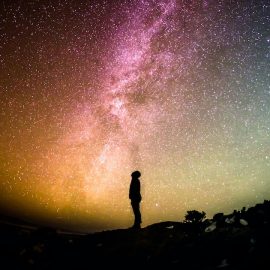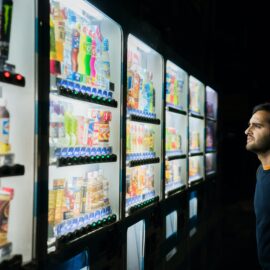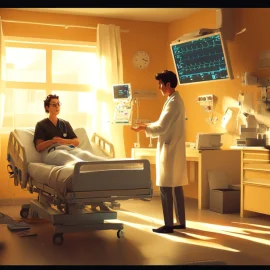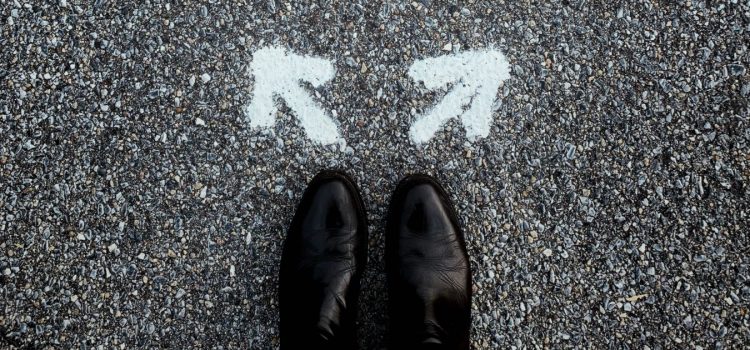
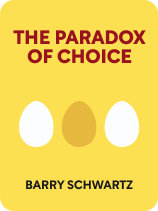
This article is an excerpt from the Shortform book guide to "The Paradox of Choice" by Barry Schwartz. Shortform has the world's best summaries and analyses of books you should be reading.
Like this article? Sign up for a free trial here .
What are the three different types of choices? How can having more options make decisions even more difficult?
In his book The Paradox of Choice, Professor Barry Schwartz discusses the three categories of choice: consumer choices, complex choices, and personal choices. Schwartz focuses on the fact that today we have more options than ever, and although that may appear to be a good thing at first, it actually causes more problems than it solves.
Continue below to learn about each type of choice.
Three Categories of Choice
The many different decisions just about everyone has to make fall into three broad categories—consumer choices, complex choices, and personal life choices.
Schwartz explains how choices in each of these categories have expanded and become more complex—and how this expansion impacts our lives.
Consumer Choices
Of the three types of choices, the first is consumer choice. Consumer choices are choices about purchases of consumer or tangible goods, from potato chips to computers.
According to Schwartz, consumer choices have expanded to the point that seemingly simple decisions require a lot of unnecessary thought and energy—if there are 30 brands of cookies to choose from at a supermarket, for instance, you must give more attention to deciding which cookie to buy.
One way to mitigate this stress in consumer choices is to identify the decisions that are worth your time and energy. To do this Schwartz distinguishes between “durable” and “nondurable” consumer goods: Durable goods are those that last a long time, like electronics or appliances, and nondurable goods are used quickly, like groceries.
People typically spend more money, time, and energy to choose durable goods than nondurable ones, because you’ll use these goods for a long time, the lengthier decision-making process is worth the effort. In contrast, by spending too much time making choices among nondurable goods, we use up energy we should spend on choosing durable goods.
(Shortform note: All durable and nondurable goods are tangible, meaning they’re physical objects you can use. In contrast, services, such as restaurant service or exercise classes, are intangible. Broader life choices, like marriage or religion, can’t accurately be described as either goods or services.)
Complex Choices
Of the three types of choices, the second is complex choices. Complex choices involve more complicated decisions about intangibles that have a greater impact on our lives than products.
Common areas of complex choice include utilities, insurance, education, retirement, medical care, and jobs. Schwartz writes that choices have expanded in all of these areas. For example, there are numerous electricity plans to choose from without many distinct differences, hundreds of college majors, and many private and government-subsidized insurance plans. These choices are all consequential and take time to consider, and Schwartz argues that the proliferation of options in each of them makes it harder to reach a satisfactory and well-informed decision.
(Shortform note: While utilities and insurance are important choices that take time and energy to consider, other complex choices like education and retirement are generally of greater importance. People with the financial means have the opportunity to change their utilities and insurance plans if they are unsatisfied, but education and retirement choices have longer-lasting consequences that may significantly affect the life of the chooser.)
Personal Life Choices
In contrast to consumer and complex choices, personal life choices are broad, long-term choices that don’t explicitly involve purchases, but instead incorporate how we want to experience our lives and present ourselves to the world. These typically involve choices surrounding our personal relationships and our identities (religious, social, and so on).
Schwartz explains that aspects of our personal lives where choices have expanded include relationships, religion, and identity. People now have greater choice over their romantic relationships: Strict social norms previously led many people to marry, buy property, and have children on an expected timeline—but now, most people have the freedom to create romantic relationships that work best for them. Freedom to choose which religion to practice, or not to practice religion at all, has grown more common and socially accepted. Many people are now more free to express their identities as they want to (for example, someone can engage with their queer identity with an L.G.B.T.Q. social group, and also engage with their Jewish identity when attending services at their synagogue).
| Since this book’s publication, our choices in these arenas have only grown. In romance, dating apps and websites have expanded our relationship options, although some of these services are more useful than others. An article in Nautilus argues that websites that curate your matches to a greater extent, such as eHarmony, are more effective because they force you to look closely at a few people, rather than presenting dozens. When it comes to religion, although the options haven’t expanded a lot, 42% of people surveyed in 2015 said they’d changed their religious affiliation at least once. Disengaging from religion entirely, too, is becoming more common: Between 2007 and 2014, people reporting a lack of religious affiliation increased from 16% to 23%. |
Schwartz believes that these are all positive developments, allowing people greater control over how to live their lives. However, he notes that it can be more challenging to make choices in areas as consequential as relationships and religion when you have many options available to you.
The Consequences of Expanded Choice
The countless choices in these three categories overwhelm and deplete us, according to Schwartz. These are all deliberate decisions, or choices that we actively think about, rather than unconscious choices that we make automatically, like basic hygiene. Expanded choice overloads us with deliberate decisions in inconsequential areas. As a result, we prioritize our choices poorly, spending time and energy on inconsequential decisions without giving ourselves space to consider more important choices.
| Can Expanded Choice Have Positive Effects? Some researchers have come to opposite conclusions about the consequences of expanded consumer choice, arguing that instead of overwhelming us, it helps us to clarify what we really want. A group of psychologists and economists conducted 10 experiments where subjects were made to choose between either limited or expanded options. The researchers found no correlation between expanded choice and difficulty of decision-making. Instead, they found that offering many choices doesn’t make much of an impact on decision-making either way. Another researcher conducted a study on what happens when people are faced with only one option and found that they were much more likely to make a decision when they had multiple options. These studies seem to contradict Schwartz’s main findings about the stress expanded choice can cause: If having too many choices has either no effect or a positive effect, then it’s not a problem that needs to be fixed. However, Schwartz has responded to these claims by arguing that, while some studies have indicated that expanded choice can have a positive effect, numerous other studies published since The Paradox of Choice have indicated negative effects. |

———End of Preview———
Like what you just read? Read the rest of the world's best book summary and analysis of Barry Schwartz's "The Paradox of Choice" at Shortform .
Here's what you'll find in our full The Paradox of Choice summary :
- Why the more choices we have, the more stressed and indecisive we feel
- How to better navigate our choices, from groceries to health insurance
- Whether it's better to seek the best or accept "good enough"



